-
How a Natural Sweetener Can Help with Your Teeth

If you’re looking for a way to reduce your risk of tooth decay, xylitol may be the answer. Xylitol is a natural sweetener that can be found in a variety of products and foods. It’s also been shown to have dental benefits, including reducing the risk of cavities and gum disease. Here’s what you need to know about xylitol and its oral health benefits.
What is Xylitol?
Xylitol is a sugar alcohol that occurs naturally in fruits, vegetables, and other plant-based sources. It’s commonly used as a sugar substitute in food and beverages because it has a sweet taste but doesn’t cause the same blood sugar spikes as regular sugar. Xylitol is also used in a variety of products, such as chewing gum, toothpaste, and mouthwash.
What Products and Foods Contain Xylitol?
Xylitol is found in a variety of foods and beverages, including baked goods, candy, chocolate, fruit juices, jam, syrup, and yogurt. It’s also available as a dietary supplement. You can find xylitol-sweetened products in most grocery stores and health food stores.
How Xylitol Affects Your Teeth
When it comes to oral health, xylitol has several benefits. Xylitol has been shown to reduce the risk of cavities by preventing the growth of bacteria that cause tooth decay. It also helps to repair damaged tooth enamel. Xylitol also stimulates saliva production, which helps to keep your mouth healthy and free of bacteria.
How Does Xylitol Compare to Sugar?
Compared to sugar, xylitol is a healthier choice for your teeth. Sugar promotes the growth of cavities-causing bacteria, while xylitol inhibits bacterial growth. Xylitol is also lower on the glycemic index than sugar, so it won’t cause the same blood sugar spikes. And because xylitol is a natural sweetener, it’s a good choice for people who are looking for a healthier alternative to sugar.
Is Xylitol Safe?
Xylitol is safe for most people. However, like any other food, it’s important to eat it in moderation. Xylitol is safe for people of all ages, including pregnant women and children. However, if you have diabetes, xylitol may cause your blood sugar levels to rise. If you have any concerns about consuming xylitol, talk to your doctor or dentist.
The Use of Xylitol for Oral Health
Xylitol has been shown to be effective in preventing cavities and gum disease. It’s also a good choice for people who are looking for a natural alternative to sugar. If you’re interested in using xylitol for your oral health, talk to your dentist. They can recommend products that contain xylitol and advise you on how much to use.
Can Xylitol Restore Cavities and Reverse Gum Disease?
Xylitol has been shown to be effective in preventing cavities. However, it’s important to note that xylitol cannot reverse cavities or gum disease. If you have cavities or gum disease, it’s important to see your dentist for treatment.
Schedule an Appointment with Park 56 Dental in New York Today to Learn More About Oral Care and Wellness
If you’re interested in learning more about oral care and wellness, schedule an appointment with Park 56 Dental in New York today. We offer a variety of dental services, including preventive care, restorative dentistry, cosmetic dentistry, and more. We also offer a wide range of dental products, such as toothpaste, floss, mouthwash, and more. Contact us today to schedule an appointment.
-
Tooth-Replacement Options
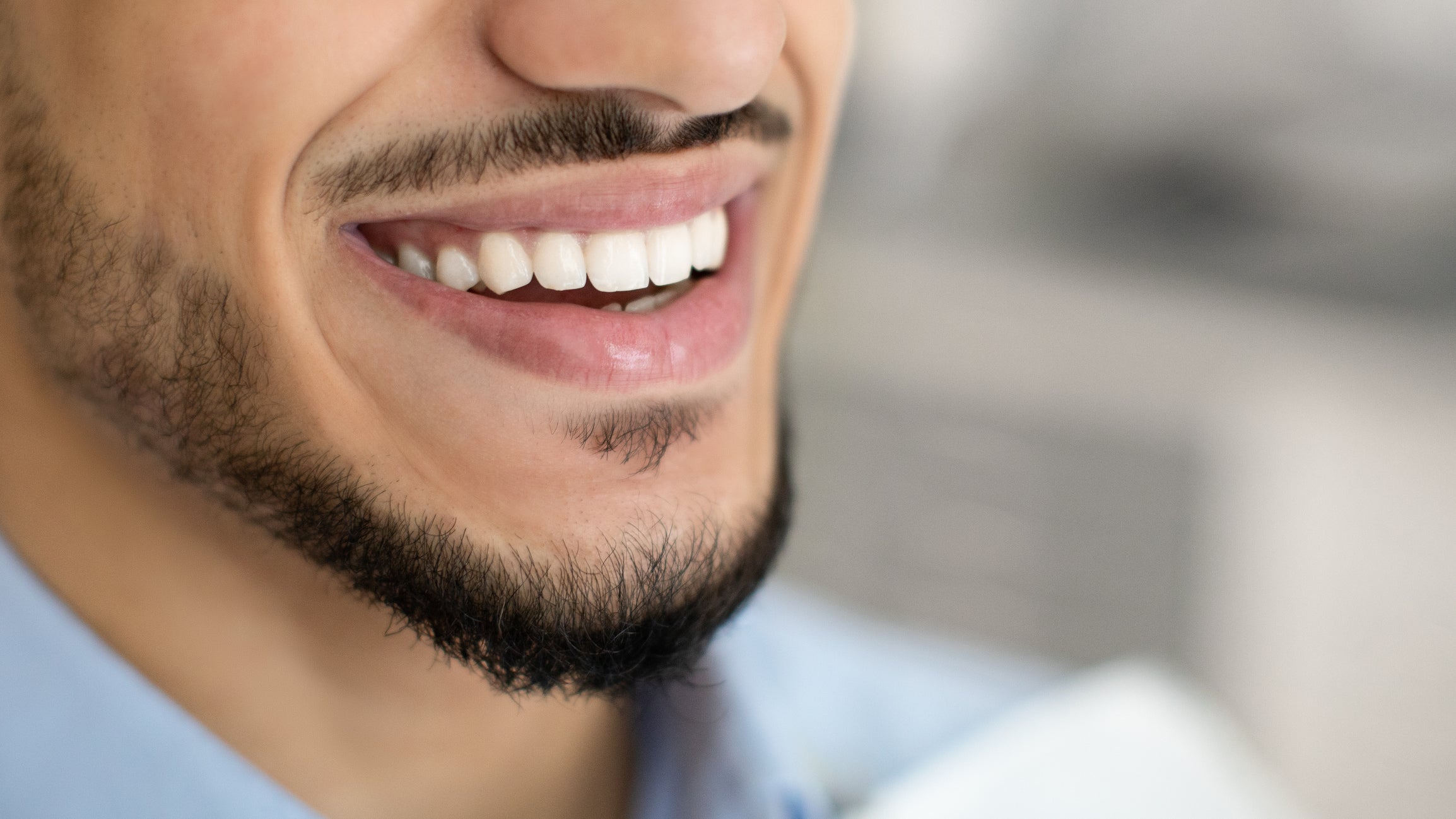
If you are missing teeth, it is important to replace them for both aesthetic and functional reasons. Missing teeth can cause problems with chewing and speaking and can also lead to other teeth shifting out of place. Replacing your missing teeth will help you to restore your smile and your ability to eat and speak normally.
There are several different options available for tooth replacement, and the best option for you will depend on a number of factors including the number of teeth you are missing, the condition of your remaining teeth, and your budget. Your dentist can help you to determine the best option for you based on your individual needs.
Dental Implants
Dental implants are one popular option for tooth replacement. A dental implant is a small metal post that is surgically implanted into the jawbone. Once the implant has healed, an artificial tooth, called a crown, is attached to the implant. Dental implants are very strong and durable and can last a lifetime with proper care. However, they are also the most expensive option for tooth replacement.
Implant-Supported Bridge
Another option for tooth replacement is an implant-supported bridge. An implant-supported bridge is like a traditional dental bridge, except that instead of being supported by natural teeth, it is supported by dental implants. This option is a good choice for people who are missing several teeth in a row. Like dental implants, an implant-supported bridge can last a lifetime with proper care.
Tooth-Supported Bridge
A third option for tooth replacement is a tooth-supported bridge. A tooth-supported bridge is made up of artificial teeth, called pontics, that are supported by natural teeth on either side. This option is less expensive than dental implants, but it is not as durable and may need to be replaced sooner.
Removable Partial Denture
A fourth option for tooth replacement is a removable partial denture. A removable partial denture consists of artificial teeth set in a pink base that matches the color of your gums. The denture is held in place by metal clasps that attach to your natural teeth. Removable partial dentures can be taken out for cleaning and are typically less expensive than other options for tooth replacement.
Flipper
A fifth option for tooth replacement is a flipper. A flipper is a temporary tooth replacement option that consists of an artificial tooth attached to a plastic base. The flipper is held in place by metal wire or plastic posts. Flippers are the least expensive tooth replacement option, but they are also the least durable and may need to be replaced more often than other options.
Visit Park 56 Dental Today for a Consultation
No matter which tooth-replacement option you choose, it’s important to see a dentist regularly to make sure your new teeth are healthy and functioning properly.
Park 56 Dental in New York can help you to choose the best tooth replacement option for you based on your individual needs. We offer a full range of dental implant and tooth replacement services, and our experienced dentists will work with you to create a treatment plan that meets your goals. Contact us today at (646) 679-3989 to schedule a consultation.
-
What is Burning Mouth Syndrome?
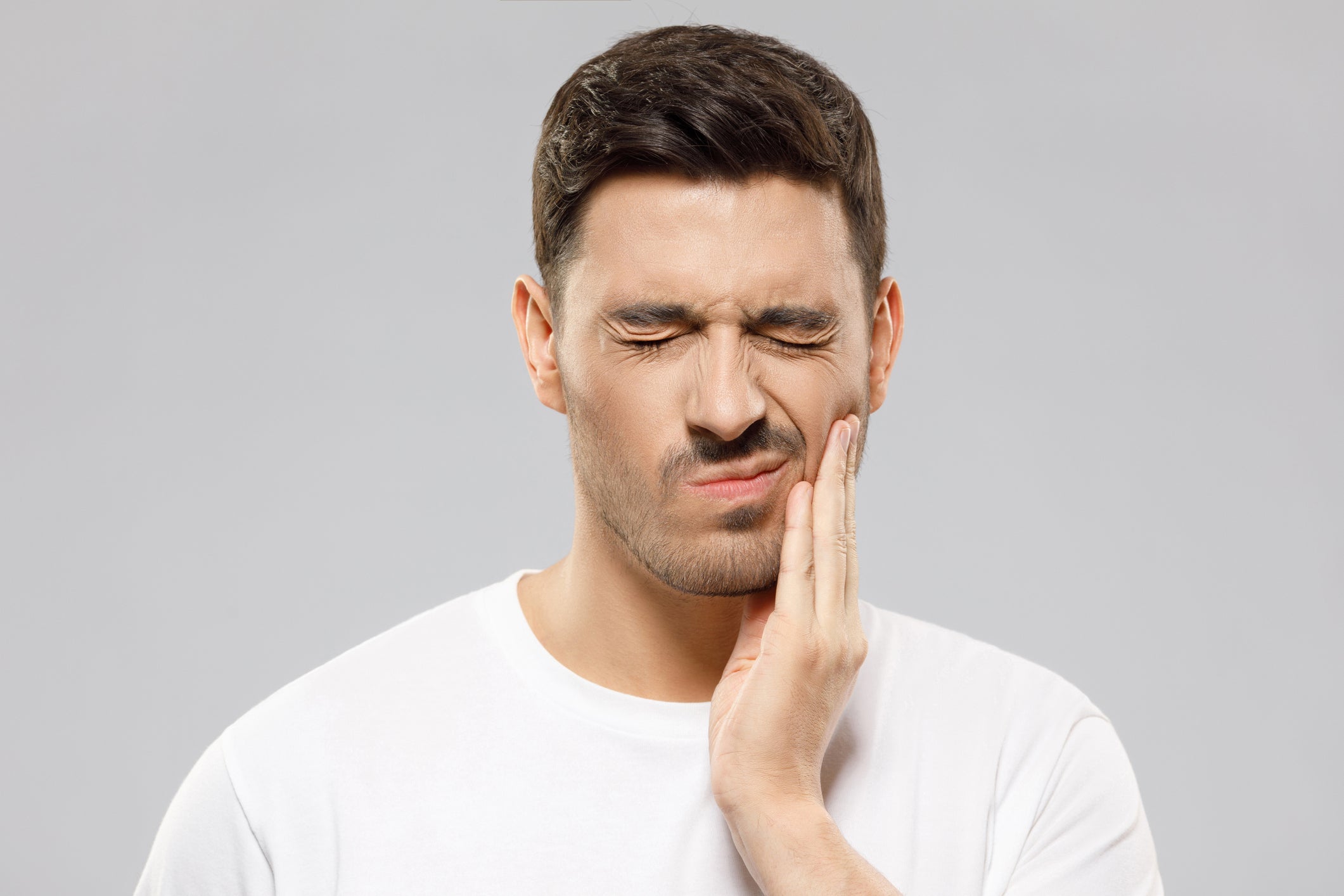
Burning mouth syndrome (BMS) is a condition that causes burning pain in the mouth. Approximately 3% of people suffer from burning mouth syndrome. The exact cause is unknown, but it is believed to be related to changes in nerve function.
Treatment typically involves managing symptoms with oral hygiene, dietary changes, and medications. In some cases, behavioral therapy may also be recommended. If you are suffering from burning mouth syndrome, you are not alone. Read on to learn more about BMS and how you can manage your symptoms to feel better.
An Overview of Burning Mouth Syndrome
Burning mouth syndrome (BMS) is a condition that causes burning pain in the mouth. It can affect the tongue, gums, lips, inside of the cheeks, and roof of the mouth. The pain may be constant, or it may come and go. BMS is also known as glossodynia, stomatodynia, orodynia, and burning tongue syndrome.
Are There Different Types?
There are two types of burning mouth syndrome: primary and secondary. Primary BMS has no known cause. Secondary BMS is caused by an underlying medical condition or medications.
Is Burning Mouth Syndrome More Common in Certain People?
Burning mouth syndrome is more common in women than men. It is also more common in people over the age of 50.
What Are the Symptoms of Burning Mouth Syndrome?
The main symptom of burning mouth syndrome is burning pain in the mouth. Other symptoms include dry mouth, bitter or metallic taste in the mouth, and sensitivity to hot or cold temperatures.
What Are the Causes?
The cause of primary BMS is unknown, but it is thought to be related to nerve damage. Secondary BMS can be caused by an underlying medical condition, such as diabetes, Sjogren’s syndrome, nutritional deficiencies, or viral infections. It can also be caused by medications, such as antidepressants, antihistamines, or high blood pressure medications.
Do Medications Cause Burning Mouth Syndrome?
Medications are a common cause of secondary BMS. Antidepressants, antihistamines, and high blood pressure medications are the most common medications that cause BMS.
How Do You Diagnose Burning Mouth Syndrome?
Burning mouth syndrome is diagnosed based on the symptoms. A physical exam and medical history are also done to rule out other conditions with similar symptoms. Blood tests may also be done to check for underlying medical conditions.
What Treatments Are Available for Burning Mouth Syndrome?
There is no cure for burning mouth syndrome, but there are treatments that can help relieve the symptoms. Treatment options include mouthwashes, lozenges, and topical creams. In some cases, antidepressant or anticonvulsant medications may be prescribed.
How Do I Prevent Burning Mouth Syndrome?
There is no known way to prevent burning mouth syndrome. However, if you have an underlying medical condition that is thought to be a cause of BMS, treating the condition may help reduce the symptoms of BMS.
How Long Does It Take for Burning Mouth Syndrome to Resolve?
The duration of burning mouth syndrome varies from person to person. In some cases, BMS may go away on its own. In other cases, it may be a chronic condition that requires treatment.
While there is no cure for BMS, there are treatments that can help lessen the symptoms. Park 56 Dental can work with you to develop a treatment plan that meets your needs. We may recommend changes to your diet, medications to help with pain or dryness, and behavioral therapies to help reduce stress or anxiety. Contact us today for a free consultation!
-
How Dental Implants Can Improve Your Confidence

Everyone wants a beautiful smile, which is why you strive to take good care of your teeth. However, if you’ve lost a tooth due to injury or decay, your smile may now embarrass you rather than boosting your confidence. Sure, dentures are a temporary fix, but they’re sometimes uncomfortable and frustrating to wear. They could even become a source of embarrassment themselves if your false teeth shift as you talk or eat.
Dental implants are the superior choice for replacing a lost tooth. This dental advancement has come a long way in recent years and is now considered the most permanent and effective treatment for tooth loss. Learn how dental implants can improve your confidence as you decide whether this restorative treatment is right for you.
Natural Appearance
The first thing most people notice about you is your smile. If you have a gap from a missing tooth, this becomes the focal point of your appearance.
The biggest reason to choose implants is that they restore a natural-looking smile. They are expertly crafted to match the shape, color, and sheen of your surrounding natural teeth, so no one will know you have implants. This knowledge gives you the confidence to talk and laugh freely.
Fully Functional
The biggest problem with dentures is that they don’t allow you to eat your favorite foods comfortably or at all. People with dentures may learn this the hard way after an embarrassing incident during lunch with friends.
Implants don’t just look like your natural teeth—they act like them. Expect to regain up to 70% of your biting force, and feel free to chew the stickiest foods without worry.
Preserved Oral Health
A beautiful smile relies on healthy gum tissue and strong jaw bones. If you’re missing one or more teeth, your oral health may suffer. Gums recede, bone deteriorates, and surrounding teeth shift and weaken, putting your whole smile at risk. If left untreated long enough, your entire face shape may change, making you look older.
Implants are the solution to these problems. They include a titanium post that mimics a tooth root, giving your jaws and gums the structure they need to retain youthful vibrancy. No other tooth replacement option offers this benefit.
Long-Lasting Results
Dental implants have over a 95% success rate and are considered a permanent solution. This means you don’t need to pay to replace them every few years like traditional dentures. Best of all, caring for implants is easy—simply brush, floss, and visit the dentist regularly to get the most out of them. With good oral hygiene habits, implants can last a lifetime!
The NYC dentists at Park 56 Dental have years of experience performing dental implants. Our skilled team uses the most advanced technology to ensure you’re thrilled with your new smile. So don’t go another day hiding the gap between your teeth—call Park 56 Dental at (212) 826-2322 or contact us online to ask the best dentist in New York all your implant-related questions.
-
How Water Plays a Role in Dental Health

You probably already know that drinking enough water is essential for good health. After all, it keeps your skin radiant, encourages proper organ function, and helps distribute nutrients around the body. But have you considered how water plays a role in dental health? Dentists promote drinking water as one of the easiest and most beneficial things you can do to promote a healthy smile, especially if the water contains fluoride. Here’s why.
Strengthen Your Pearly Whites
Fluoride is nature’s cavity fighter. When added to drinking water, the optimal fluoride level strengthens teeth and makes them less prone to decay. Most municipal water supplies around the US have fluoridated water, including New York City. The American Medical Association, the American Dental Association, and the Centers for Disease Control and Prevention commend fluoridation as one of the top 10 most important public health measures of the 20th century.
Wash Away Particles and Debris
Water cleans your mouth with every sip, washing away leftover particles and residue that cavity-causing bacteria love to eat. Water also dilutes the acids produced by oral bacteria and helps your breath stay fresh. Of course, you still need to brush and floss daily to deep-clean your teeth and gums, but drinking water throughout the day goes a long way.
Prevent Dry Mouth
Saliva, which is 99% water, is your mouth’s first line of defense against cavities. One of the most important roles of saliva is to remineralize your teeth with calcium, phosphate, and fluoride. A depleted saliva level, also known as dry mouth, interrupts the remineralization process, increasing your risk for tooth decay. While certain underlying diseases and medications can cause dry mouth, drinking water is an easy way to keep this condition at bay.
Avoid Excess Sugar Consumption
Juice, soda, and sports drinks may wash down your meal, but they leave unwanted sugar and acid behind. Sugar feeds harmful oral bacteria, which can lead to cavities. At the same time, acid erodes the outer layer of your teeth, known as enamel, leaving the underlying dentin more vulnerable to decay. Drinking water causes none of these problems. In fact, it rinses away residue to achieve a healthy equilibrium in your mouth.
Protect Your Overall Health
Have you heard of the mouth-body connection? Cavities and gum disease can send harmful inflammation-causing bacteria to other parts of the body through your bloodstream. This increases your risk for heart disease, rheumatoid arthritis, respiratory infections, kidney disease, and other health complications. By drinking more water and adopting other good oral hygiene habits, you can protect your overall health for years to come.
If you make only one change regarding your oral health, have it be to drink more water! Then, remember to visit Park 56 Dental for a checkup twice a year. We’ll help your smile stay healthy and bright with routine cleaning and restorative services when you need them. Call us at (212) 826-2322 or contact us online today to schedule your next visit with NYC’s best dentist.
-
Can regular dental cleanings help with your lungs?
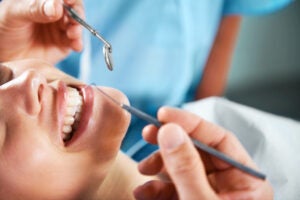
You’ve no doubt heard that seeing your dentist regularly is important for your health. Not only do twice yearly dental cleanings reduce your risk of tooth decay, cavities, and gingivitis, but they also protect against problems like cardiovascular disease. But what do dental cleanings have to do with your lungs? According to a recent study, your trips to the dentist could have a major impact on your respiratory system.
What’s the connection between dental cleanings and the lungs? When bacteria spreads to your lungs, this can result in lung infections. There are two ways bacteria can enter the lungs. The first is through inhalation. Saliva droplets are carried in and out of the mouth as we breathe, and bacteria in the saliva can enter your lungs. Most of the time, this isn’t a problem, because the immune system can protect you against becoming ill. However, if your oral health is poor and your immune system is overworked because of it, the lungs can become inflamed. The other route for bacteria to enter the lungs is through the bloodstream. If your mouth is unhealthy and gum disease is breaking down your gum tissues, the damaged tissue can allow bacteria to enter the bloodstream, causing inflammation throughout the body.
The study was authored by Dr. Michelle Doll, assistant professor of internal medicine in the infectious disease division at Virginia Commonwealth University. In the course of the research, the records of over 26,000 people were reviewed. Researchers found that, of the subjects studied, those who never sought dental care were 86 percent more likely to contract bacterial pneumonia than people who had twice yearly dental checkups. Routine preventive dental care, including caring for teeth at home through brushing and flossing as well as having regular dental exams and cleanings, is an important part of protecting against this kind of infection.
About one million Americans contract pneumonia each year, and about 50,000 of those people die from it. Pneumonia can affect anyone, but it’s more common- and more dangerous- in older people and people with lung conditions or autoimmune disease. While it’s impossible to keep all bacteria out of the lungs, it’s good to know that you can help protect yourself from pneumonia and other diseases by practicing good oral hygiene and seeing your dentist regularly.
Whether you need a cleaning, specialty oral healthcare, or just good dental advice, choose the practice that was voted best dentist in NYC! At Park 56 Dental Group, we offer pediatric, prosthodontics, endodontics, oral surgery, Invisalign®, emergency, and sedation dentistry, all at the highest level of treatment. We serve the Midtown, Central Park, Upper East Side, Park Avenue, and all surrounding Manhattan and New York areas, with a patient-centered practice that has hours to fit your schedule. Schedule your complimentary consultation today by contacting us online or calling us at (212) 826-2322.
-
How Acid Reflux Can Ruin Your Teeth

Heartburn is a common complaint, but if you’re experiencing heartburn or acid indigestion on a daily basis, you may be suffering from Acid Reflux, also known as GERD, Gastroesophageal Reflux Disease. GERD happens when the muscles of the esophagus relax and let stomach acids flow upward, sometimes into the mouth. As the condition progresses, the esophageal lining becomes corroded. It’s very uncomfortable, causing the burning sensation of heartburn. But have you ever considered that acid reflux could be damaging your teeth?
Some of the symptoms of GERD include not only heartburn, but also difficulty swallowing, a burning sensation in the mouth, a sore throat and regurgitation. A person with GERD may experience nausea, vomiting, belching, and chronic coughing. Stomach acid that reaches the mouth can also cause erosion of tooth enamel, tooth sensitivity, chipping and discoloration of teeth, and bad breath.
You probably already know that acid is bad for your tooth enamel. Oral acid, which is usually produced by bacteria, foods, and beverages, can dissolve the minerals in enamel, causing erosion and decay. Stomach acid is extremely strong, with a pH of 2.0 or less, so it can cause even worse damage to the enamel, leaving teeth yellowed, pitted, and sensitive.
What can you do to keep GERD from ruining your teeth? Talk to your doctor about managing your symptoms. You might need medication, and your doctor may recommend some lifestyle changes. These include:
- Avoiding trigger foods like chocolate, tomato-based foods, alcohol, coffee, and spicy or greasy foods.
- Quitting smoking.
- Not eating for several hours before bed.
- Losing weight.
- Not wearing tight clothing.
You can also lessen the effects of acid in your mouth. This can be done by stimulating saliva production by drinking water, taking a saliva booster, or chewing gum. You can also help neutralize acid by rinsing with plain water or a cup of water mixed with ½ teaspoon of baking soda. Antacid tablets can also help balance the pH of your mouth.
Your dentist can also help. Fluoride can strengthen your enamel, and your doctor can apply topical fluoride or prescribe a special rinse that has a higher fluoride concentration than you can get over the counter. Seeing your dentist twice a year allows the condition of your enamel to be evaluated, and your dentist can catch and treat problems while they’re still minor.
If you’re looking for a dentist in New York, choose the practice that was voted best dentist in NYC! At Park 56 Dental Group, we offer pediatric, prosthodontics, endodontics, oral surgery, Invisalign®, emergency, and sedation dentistry, all at the highest level of treatment. We serve the Midtown, Central Park, Upper East Side, Park Avenue, and all surrounding Manhattan and New York areas, with a patient-centered practice that has hours to fit your schedule. Schedule your complimentary consultation today by contacting us online or calling us at (212) 826-2322.
-
The Link Between Periodontal Disease and Premature Birth

It’s long been known that periodontal disease is a serious health problem. Beyond causing tooth loss and bleeding gums, periodontal disease can be detrimental to the whole body when bacteria from infected gums enters the bloodstream. Now, new research has revealed a link between periodontal disease and pre-term birth, showing that women with gum disease are substantially more likely to go into early labor than women with healthy gums.
The study, conducted by University Hospital Hradec Králové, Czech Republic, and led by Dr Vladimíra Radochová, from the department of dentistry, was published in the Journal of Clinical Periodontology. According to the Chief Executive of the Oral Health Foundation, Dr. Nigel Carter OBE, the research underscores the affect of oral health on a person’s overall health. The study showed that, of women who went into labor before 37 weeks of pregnancy, 45 percent had gum disease. By contrast, only 29 percent of women who experienced a perfect pregnancy had gum disease.
Worldwide, premature labor is the result of about 10 percent of all pregnancies. In the UK, the rate is about seven percent, and about 10 percent of babies in the United States arrive early, according to the Centers for Disease Control and Prevention. Premature birth can be the result of changes in the cervix or premature rupture of membranes, also known as “waters breaking.” So, what’s the link to periodontal disease?
It’s thought that bacteria in plaque traveling through the bloodstream to the placenta causes inflammation. Part of the problem is that it can be difficult for women to maintain good oral health while pregnant. Hormonal changes can make the gums more likely to be sore, swollen, and even bleed, because they’re more vulnerable to plaque. The women involved in the study who went into early labor were found to have eight times more plaque than the women with more favorable outcomes, and dental health that was four times lower. In addition to gum disease, women who had premature labor were more likely to have untreated tooth decay or fillings.
The takeaway from the study is that it’s important for a woman to care for her mouth to help ensure a healthy pregnancy. Brushing twice a day and flossing can help maintain oral health, and refraining from smoking and alcohol consumption can also reduce the chance of gum disease. Most important are regular dental appointments, to stay on top of oral health issues and keep periodontal disease at bay.
During pregnancy and every other stage of life, when you’re looking for excellent dental care and advice you can trust, choose the practice that was voted best dentist in NYC! At Park 56 Dental Group, we offer pediatric, prosthodontics, endodontics, oral surgery, Invisalign®, emergency, and sedation dentistry, all at the highest level of treatment. We serve the Midtown, Central Park, Upper East Side, Park Avenue, and all surrounding Manhattan and New York areas, with a patient-centered practice that has hours to fit your schedule. Schedule your complimentary consultation today by contacting us online or calling us at (212) 826-2322.
-
8 Bad Habits That Ruin Your Dental Health
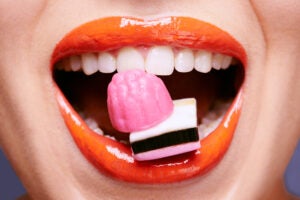
Are you looking for ways to take better care of your smile? It’s easy to focus on things you should do, like brush morning and night, floss once a day, and visit your dentist for a professional cleaning every six months. But what about the things you shouldn’t do? Here are eight bad dental health habits that you need to break right now.
- Chewing on ice or hard candy: Munching on the ice cubes at the bottom of your drink may seem harmless, but this habit can damage your teeth if you bite down wrong. Chill your beverage before serving it to avoid needing ice, or drink from a straw to reduce the temptation to chew.
- Biting your nails or chewing on pens: These bad habits introduce harmful germs into your mouth, damage your teeth, and lead to jaw dysfunction. If you want to stop biting your nails, try wearing bitter-tasting nail polish.
- Using your teeth as tools: Never use your teeth to open packages, undo knots, tear tape, or open bottles. Instead, find the right tool for the job, such as scissors or a bottle opener.
- Constantly snacking or sipping on sugary drinks: Eating nonstop keeps your teeth in constant contact with food particles, increasing the risk of cavities. This habit is even more problematic if your snacks or drinks have high sugar content. The solution is to eat balanced meals so you aren’t tempted to snack all day. Then, reach for water instead of juice, soda, or sports drinks.
- Brushing too hard: Aggressive brushing can wear down tooth enamel and irritate your gums. To avoid these problems, choose a soft-bristled toothbrush and focus on gently massaging your teeth, not scrubbing them raw.
- Playing contact sports without a mouthguard: It only takes one hit to the mouth to chip, break, or even lose a tooth. You might also bite your cheek or tongue. To protect your teeth and soft tissues, ask your dentist about creating a custom mouthguard.
- Grinding your teeth: Stress can cause nighttime tooth grinding, or bruxism, a habit you have little control over. If you think you grind your teeth in your sleep, the best solution is to wear a special nighttime mouthguard your dentist makes just for you.
- Smoking or chewing tobacco: Using tobacco products of any kind stains your teeth, causes gum disease, and increases the risk of oral cancer. Save your dental health—talk to your dentist for tips to quit smoking
At Park 56 Dental, we know it can be hard to break bad oral health habits. But just a few small changes can go a long way toward preserving your smile! For more tips or to schedule your next dentist visit, feel free to get in touch. We’ve been voted the best dentist in New York, with over 20 years of experience serving the 10022 zip code area. Call us at (212) 826-2322 or contact us online to speak with our NYC dentist today.
-
Why it’s Important to Replace a Lost Tooth
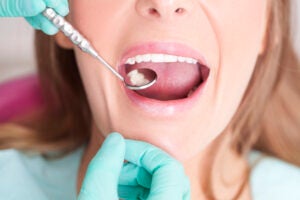
Many people assume that a missing tooth only has cosmetic consequences. But while having a gap in your smile is enough to make anyone self-conscious, there are also numerous health-related reasons not to ignore a missing tooth. Whether you opt for a bridge, removable partial dentures, or a dental implant, here’s a look at why it’s important to replace a lost tooth.
- Your teeth may shift and loosen: Every tooth helps maintain the stability of the one next to it. If you lose a permanent tooth, the surrounding teeth may begin shifting to fill the gap, undoing years of orthodontic work.
- Chewing may be more difficult: The sensitive gum tissue where your tooth is missing can make it painful to chew in that part of your mouth. Then, if your teeth drift out of place, your bite may suffer, making chewing even more uncomfortable. Over time, you may find it cumbersome to eat solid, healthy food like fruits and vegetables, which can lead to poor nutrition.
- You could develop TMJ disorder: To avoid discomfort, you may start chewing food on only one side of your mouth. However, this can strain your jaw muscles and lead to temporomandibular joint (TMJ) disorder, resulting in jaw pain, chronic headaches, and other symptoms. Lopsided chewing can also wear down your teeth unevenly and affect their appearance.
- You may be more prone to cavities and gum disease. A shifting smile and altered bite can make your teeth harder to clean. This means you’re more vulnerable to tooth decay and gum disease, both of which may lead to further tooth loss.
- Your jaw bone could deteriorate: A healthy jaw is only possible if you have healthy teeth to stimulate the production of new cells. If you lose one or more teeth, this stimulation disappears, which can lead to bone loss.
- Your appearance could change: When your opposing teeth have nothing to make contact with, your muscles and bone structure may begin to change. This problem is most apparent if you lose several teeth, which can lead to sunken cheeks and an aged appearance.
- Your self-esteem could suffer: Losing baby teeth may have been fun as a kid, but having a gap in your smile as an adult can drain your confidence level. First, you become concerned with your appearance and cover your mouth when you smile. Then, you may avoid talking too much if you develop a speech issue. Depression and anxiety can set in as a result.
If you recently lost a tooth in a traumatic incident or had a decayed tooth extracted, visit Park 56 Dental to explore your tooth-restoration options. We recommend dental implants to many of our patients because they provide a hassle-free, long-lasting way to replace a lost tooth. Even if you didn’t qualify for an implant in the past, you may now be eligible. To find out what makes us the best dentist in New York, please call us at (212) 826-2322 and schedule a consultation.
RECENT POSTS
categories
- Uncategorized
- Cosmetic Dentistry
- Veneers
- Healthier Teeth
- Teeth Whitening
- Dental Health
- Video
- Dental Emergencies
- Invisalign
- Dental Implants
- Root Canal
- Sedation Dentistry
- Infographic
- Dental Crowns and Bridges
- Dental Anxiety
- Gum Disease
- COVID-19
- Bad Breath
- New York Dentist
- Cut out sugar
- General Dentistry
- Oral Health
- Oral Cancer
- Dry Mouth
- Gum Health
- Toothache
- Dental Sealants
- Cavities



